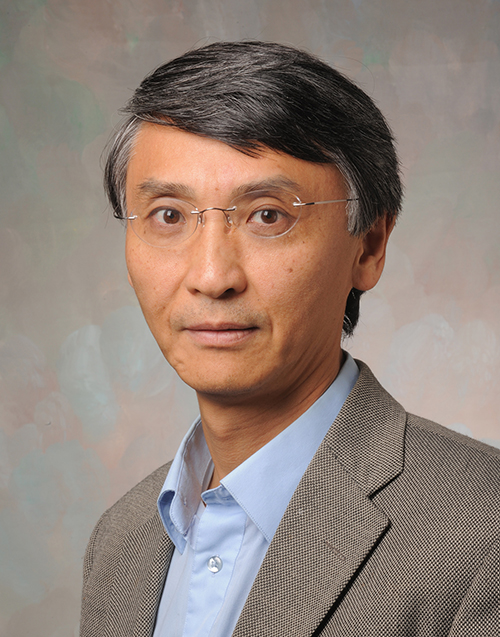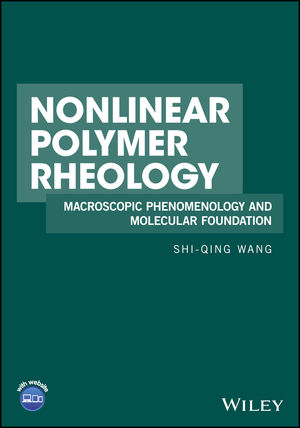Polymer Professor publishes “Nonlinear Polymer Rheology,” after a decade of intensive research
It was a project ten years in the making. Dr. Shi-Qing Wang, Kumho Professor in the Department of Polymer Science, worked for a decade toward his goal: a massive book on polymer rheology, rooted in knowledge discovered here at The University of Akron since 2004. Dr. Wang’s work was realized with the publication of his book, Nonlinear Polymer Rheology: Macroscopic Phenomenology and Molecular Foundation.
The goal was to expose readers to the latest knowledge of an old subject: the rheological behavior of polymer melts and concentrated polymer solutions. Dr. Wang and his team wanted to achieve a realistic physical picture of nonlinear polymer rheology. The book was based on a large collection of phenomenology, partially inspired by the new conceptual framework, and written to provide comprehensive experimental information and conceptual discussions in order to develop a new, reliable, and realistic understanding of the nonlinear rheology of entangled polymers.
Dr. Wang began teaching at Case Western Reserve University in the fall of 1989, and it was there that he taught courses in rheology based on a few existing texts. While teaching the subject according to these books, he actually had a lot of trouble in presenting the arguments and the discussions. “Viscoelasticity seemed rather abstract while shear thinning of polymeric liquids appeared obvious,” said Dr. Wang. In his first 5 years at Case he worked on a project of polyethylene extrusion sponsored by BP chemicals, which would launch his career into polymer rheology. He was recruited to UA in 2000, where he began developing the content in the book.
“I have been very lucky to attract many talented students to come to Akron and join my lab,” said Dr. Wang. “My graduate students have kept me company. Consequently, I had never been alone on my journey to acquire new knowledge and a new fundamental understanding of polymer rheology. Without their coming to my research group, my scientific world would have been a rather empty place. Without their dedication to carry out all the essential experiments that led to the new worldview on polymer rheology, this book could not have been written.”
Just as Dr. Wang attributes his success to his graduate students, the College of Polymer Science and Polymer Engineering would not be the same without its incredibly talented faculty. Please join CPSPE in congratulating Dr. Wang on his academic achievement.


